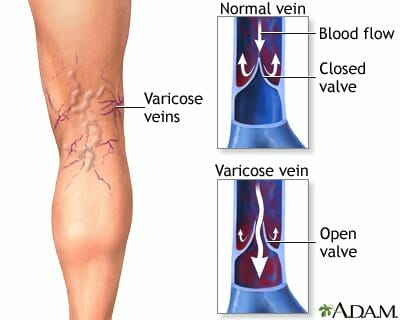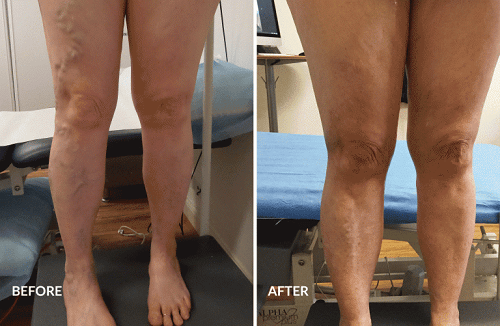If you find yourself experiencing vein issues that are negatively affecting your health, you may want to seek the care of your General Practitioner (GP). If your vein disease is beyond their scope of expertise, your doctor will most likely refer you to a Phlebologist or doctor who has expertise in treating vein disease. So, what does a Phlebologist do and how can they help you treat varicose veins? Here’s what you need to know!
What is a Phlebologist?
Phlebology is the study of vein anatomy, diseases and physiology. Therefore, a Phlebologist is a medical doctor whose specialises in diagnosing and treating an assortment of venous disorders. In Australia, Phlebologists are usually doctors who come from a specialist background including but not limited to vascular surgery, radiology, general practice, or dermatology.
In most cases Phlebologists are qualified to treat the following venous insufficiency conditions:
- Varicose veins
- Spider veins
- Venous ulcers
- Vascular birthmarks
The objective of a Phlebologist is to offer relief to patients who are experiencing pain and discomfort from their vein disease, and to restore healthy blood circulation in the affected area.
What does a Phlebologist do?
When you meet with a Phlebologist, they will diagnose your venous disorder by reviewing your medical history, performing a physical examination and possibly using imaging technology or laboratory tests. If you are diagnosed with varicose veins or other conditions, the phlebologist will recommend a course of treatment, or at the very least give you medical advice on how to manage your condition.
You may be prescribed compressions stockings for immediate (but temporary) relief of varicose veins, for example. For a longer-term solution, they will be able to offer you ultrasound-guided treatments that seal or close off diseased veins, including:
- Sclerotherapy
- Endovenous Laser Ablation (EVA)
- Radiofrequency Ablation (RFA)
- Medical-grade superglue called VenaSeal
In rare cases, the phlebologist may refer you to a vascular surgeon to have the diseased vein surgically removed, or for a procedure known as embolization which could help if you suffer from pelvic congestion syndrome in addition to varicose veins.
When should you see a phlebologist?
For the majority of people, varicose veins are mostly a cosmetic issue and don’t pose a serious health threat. For some patients, however, untreated varicose veins can lead to a more severe medical condition, such as a blood clot, leg ulcer and venous eczema.
You most likely need to see a Phlebologist if you have any of the following (but not limited to) symptoms:
- Varicose veins: swollen protruding veins that are bluish in colour. Learn more: Varicose Vein Explained
- Discomfort: pain, cramps, heaviness in the legs and feet.
- Swelling: chronic swelling and inflammation in the legs and feet.
- Blood clot: a condition known as deep vein thrombosis (DVT). Learn more: Deep Vein Thrombosis
- Venous ulcers: also called stasis dermatitis, these are wound that form on the lower legs due to pooling of blood. Learn more: How do Venous Ulcers Form?
Do you need a referral from a GP to see a Phlebologist?
In Australia, a referral from your family doctor or general practitioner (GP) is usually required to see a Phlebologist. In fact, it’s essential because your GP already has your full medical history which they can share with the specialist.
After your referral, your GP will continue to work with the specialist going forward. They will send the details of your examinations back to your GP, and the two will cooperate to ensure you get the best post-treatment care, medications or any additional procedures that you may require.
Are Phlebology appointments covered by Medicare?
Rebates by Medicare may be available for both your initial visit and treatment by a Phlebologist if they have specialist accreditation with the Australian Medical Board otherwise known as APHRA. Typically most Phlebologists will charge private fees so a Gap fee (out of pocket) will also need to be paid. The staff at the Vein Institute will be happy to discuss any additional fees during your consultation.
Find out more: Does private health insurance or Medicare cover varicose veins?
Seek expert advice
The doctors at The Vein Institute specialise in varicose vein treatment. We offer patients a comprehensive treatment program to treat varicose veins, with non-surgical laser treatment techniques. The benefits of laser treatment to patients are:
- Walk-in walk-out treatment
- 98% success rate
- Extremely effective
- Can be performed at a clinic (no hospitalisation)
- No general anaesthetic
- Medicare rebates apply
- No downtime or time away from work
Call us on 04 2010 2637, or fill out our booking request form.
Recent Posts
[wp-faq-schema title=”FAQs” accordion=1]




